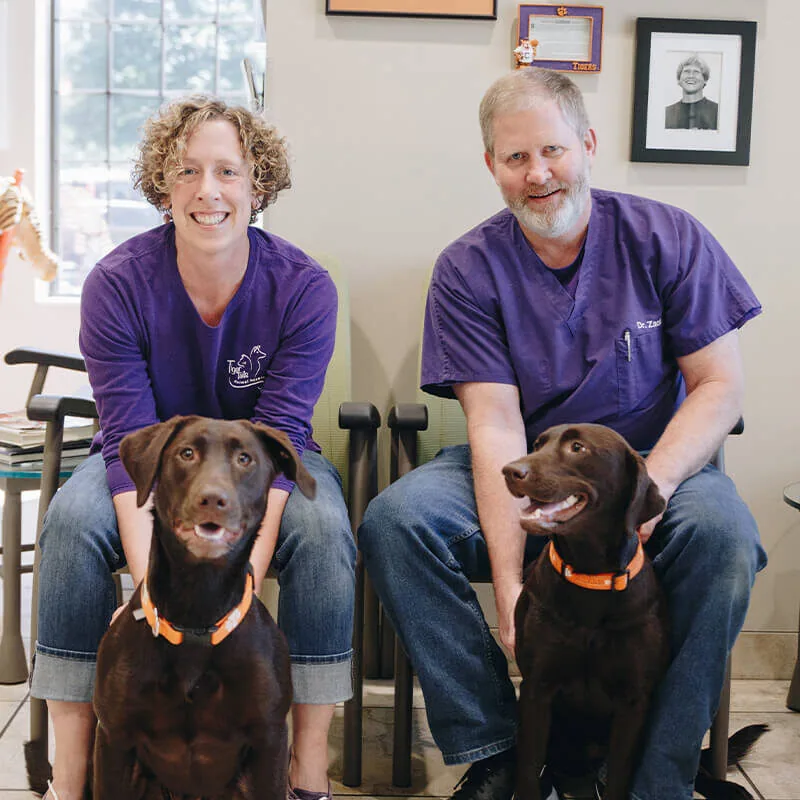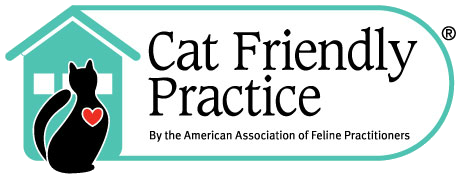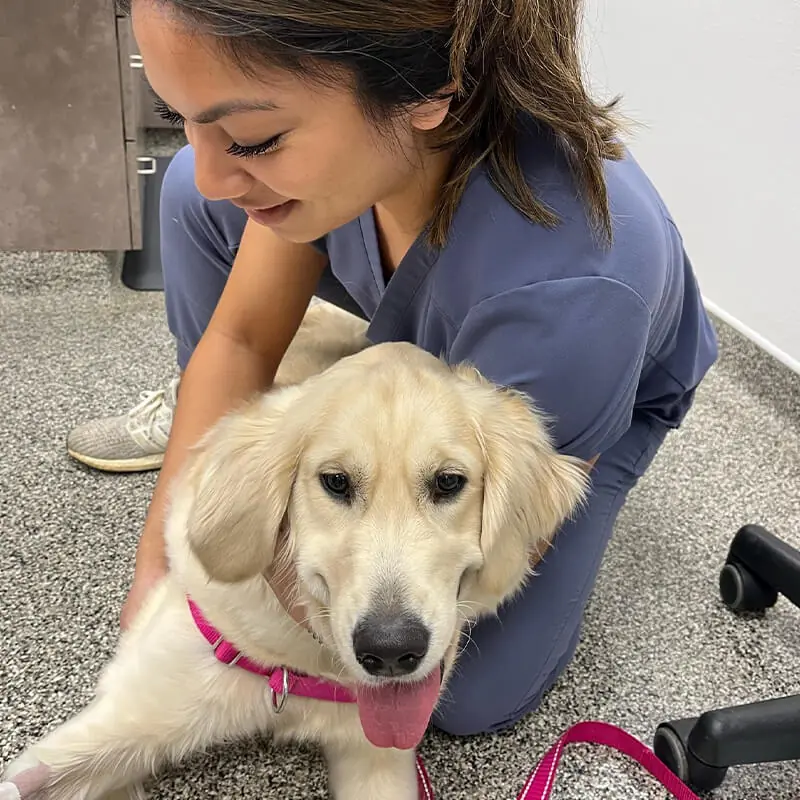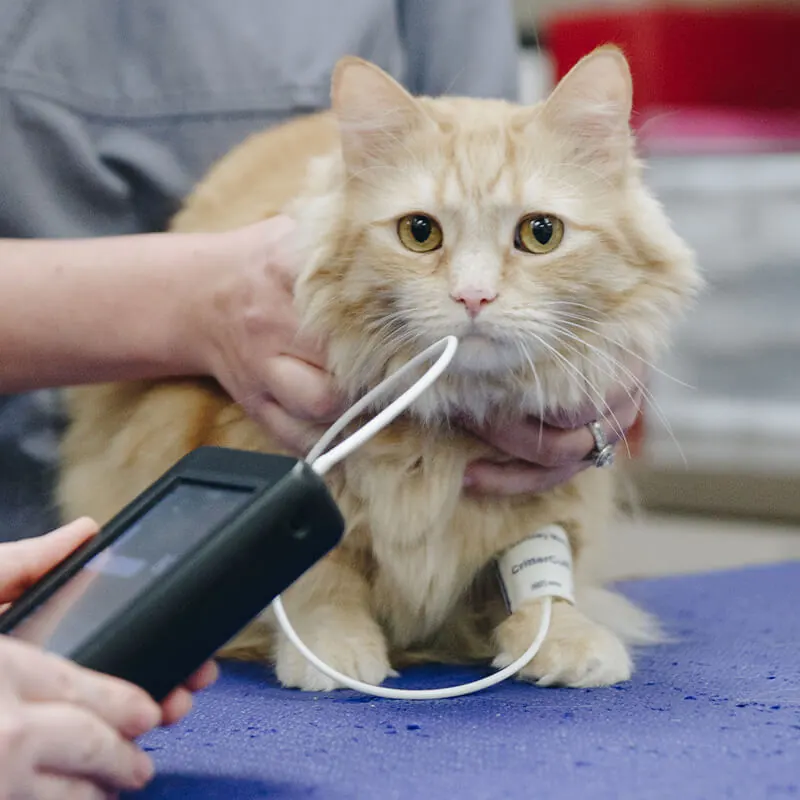Your Cat Friendly, AAHA Accredited Veterinarian in Duluth, GA
Cats and dogs have different needs, and Tiger Tails Animal Hospital is dedicated to meeting those needs to the fullest. To make veterinary visits less stressful for our patients, we offer separate practices within our facility to serve dogs and cats, respectively, using low-stress handling, pheromones, and other techniques to mitigate anxiety as much as possible. Our veterinarians are passionate about offering a higher standard of care to Duluth, GA and surrounding communities, including Suwanee and Johns Creek. Tiger Tails is a proud AAHA accredited and Cat Friendly animal hospital, staying up to date on best practices in veterinary medicine and offering a full range of services for your pet, ranging from wellness care and vaccinations to dental care, dermatology, and laser therapy.
Call our hospital today at (770) 817-9565 or request an appointment online.

Meet Our Duluth, GA Veterinarians
Tiger Tails Animal Hospital has an experienced team of veterinarians here to serve you and provide personalized, lifelong care to your pet. Get to know a little bit about them before making an appointment! They can’t wait to meet you.
Services for Keeping Pets Healthy and Happy
We’re a full-service animal hospital in Duluth, GA, offering virtually everything your pet might need throughout their life with you! Learn more about our services by clicking them below.










